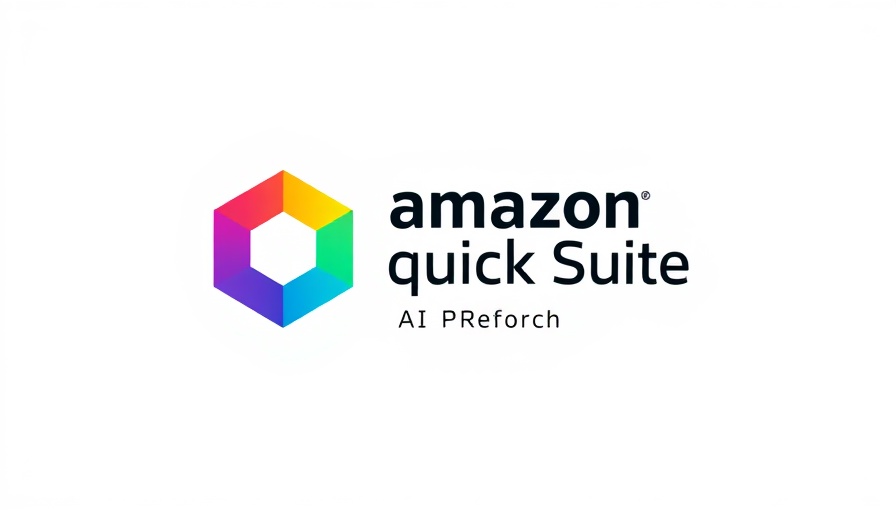
Understanding the Competition: Amazon Quick Suite Enters the AI Arena
Amazon is challenging giants Microsoft and Google with its latest offering, Amazon Quick Suite—a suite of artificial intelligence tools aimed at transforming workplace productivity. This innovation positions Amazon Web Services (AWS) in more direct competition with established players like Microsoft's Copilot and Google Gemini. By focusing on enhancing user experience in the business sector, AWS hopes to solidify its presence in the landscape of generative AI.
Key Features of Amazon Quick Suite
The platform, unveiled recently, is designed to help everyday business users automate a variety of tasks. From summarizing emails to generating reports and managing project tickets, Quick Suite harnesses the power of organizational data to streamline operations. Its innovative automation capabilities include tools like Quick Sight for data visualization and Quick Automate for more complex workflows, drawing direct comparisons to Microsoft’s and Google’s AI solutions.
The Competitive Landscape: AWS vs. Microsoft and Google
While Amazon already has a foothold in the cloud infrastructure sector, Quick Suite seeks to capitalize on AI as it becomes integrated into the fabric of workplace applications. In contrast, Microsoft has aggressively embedded its AI features directly into its productivity offerings, particularly with Microsoft 365. Similarly, Google has rolled out Gemini to equip its suite of tools for consumers and businesses with advanced AI capabilities aimed at keeping users within its ecosystem.
Amazon's Unique Approach
Unlike its competitors, Amazon lacks a native productivity suite that can seamlessly integrate Quick Suite into the daily workflow of its users. This presents a challenge; however, Amazon's vast user base of employees already piloting Quick Suite—reportedly reducing data analysis tasks from months to minutes—strengthens its case. By leveraging its existing infrastructure, AWS can provide a unique set of AI capabilities without requiring users to switch platforms entirely.
What Lies Ahead: Predictions for AI in the Workplace
As businesses increasingly adopt AI solutions, the battle for enterprise AI supremacy is expected to intensify. After all, adding a new layer of AI functionality into existing software can enhance productivity significantly, but it also means companies have to navigate a variety of new technologies. Amazon's challenge will be to convince organizations to adopt Quick Suite alongside other tools they’re already using, pushing towards greater integration across platforms. Moreover, companies like Google, which have sophisticated AI models like Gemini, may bolster employee productivity by embedding these technologies deeper into their ecosystems and day-to-day operations. This shift toward more integrated AI systems will likely reshape workflows across various industries.
Final Thoughts: The Future of Business AI
The launch of Amazon Quick Suite marks not just a new product for AWS but a vital step into a more AI-driven future for workplaces. As it stands, the competition among Amazon, Microsoft, and Google will not only inhibit each other's growth but also propel the industry forward. The diverse approaches to integrating AI into professional settings will center around user needs, data privacy, and seamless functionality—qualities that will ultimately define the most prominent AI platforms of tomorrow.
 Add Row
Add Row  Add
Add 




Write A Comment